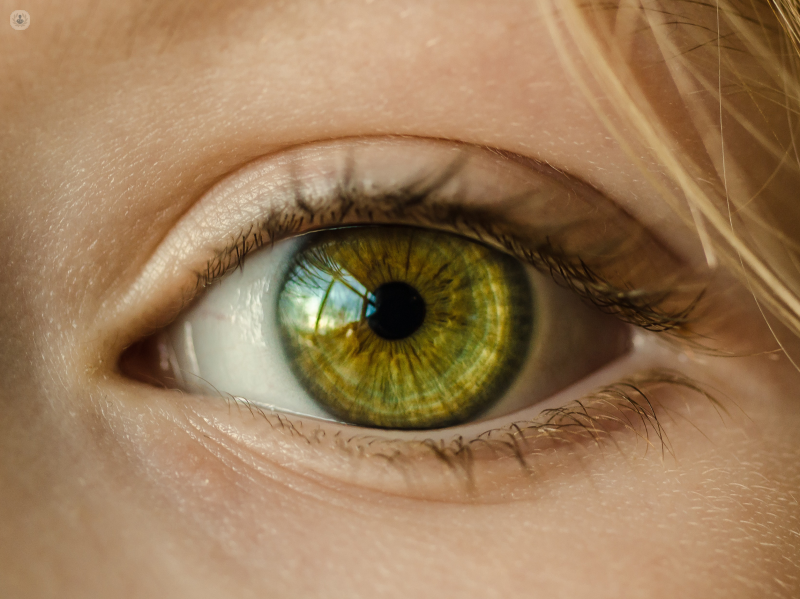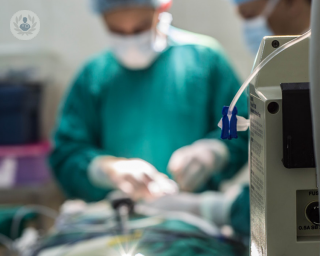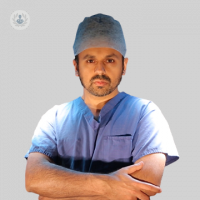Glaucoma surgery
Mr Muneer Otri - Ophthalmology
Created on: 04-28-2017
Updated on: 07-31-2023
Edited by: Aoife Maguire
What is glaucoma surgery?
Glaucoma surgery is a surgical procedure to treat glaucoma; a progressive vision condition where fluid builds up in the eye and can result in permanent blindness. The procedure can be carried out using either a laser or by making an incision into the eye to reduce intraocular pressure and save your eyesight. It is typically used when medication is not working well.

When is glaucoma surgery needed?
Surgery isn’t the first step in treating glaucoma. If other treatments don’t work, then it may be offered to you to save your eyesight. If the fluid in your eye builds up and creates too much pressure, it can damage your optic nerve and affect your vision.
What does the surgery consist of?
The type of glaucoma surgery you need depends on the type and severity of your condition and the general health of your eye. There are two types of surgery:
Laser surgery
This type of surgery is usually offered first unless the eye is very damaged from glaucoma, then the case becomes more complex and incisional surgery is needed. During laser surgery, the surgeon will use a focused beam of light to create a hole (or many small holes depending on the technique) so that the fluid in your eye can drain out. There are different types of laser treatments, such as:
- Argon laser trabeculoplasty (ALT)
- Selective laser trabeculoplasty (SLT)
- Laser peripheral iridotomy (LPI)
- Cyclophotocoagulation
Traditional surgery
Instead of using a laser beam, the surgeon may need to make a cut into the eye, known as a trabeculectomy, to create a hole in which the intraocular fluid can drain out. The surgeon may decide to use another technique where they add a small tube inside your eye where the fluid can drain. Again, these techniques act as artificial drainage canals to help reduce pressure in the eye.
What should you expect during surgery?
The operation is usually done on an outpatient basis. Your surgeon will give you local anaesthesia to numb your eye and make you feel more relaxed. It can also be done under general anaesthesia. You won’t feel any pain during the procedure and it normally takes around 45 - 60 minutes.
Aftercare
Following surgery, you should rest for a week or so. You can expect your eye to be red, sore and watery and your vision to be slightly blurry. You may even notice a small bump where the incision was made. For about a month, you should keep water out of your eye and it’s important not to drive, bend over or lift anything heavy. It is important not to wear contact lenses until the swelling disappears.
Are there any risks of complications?
As with any type of surgery, there are always some risks. After undergoing glaucoma surgery, in particular, it can put you at a higher risk of developing cataracts later in life. Other complications may occur but are rare, such as:
- Bleeding in the eye
- Persistent eye pain and inflammation
- Infections
- Loss of vision
- Eye pressure
Which specialist performs glaucoma surgery?
A specialist that performs glaucoma surgery is typically an ophthalmologist.
















